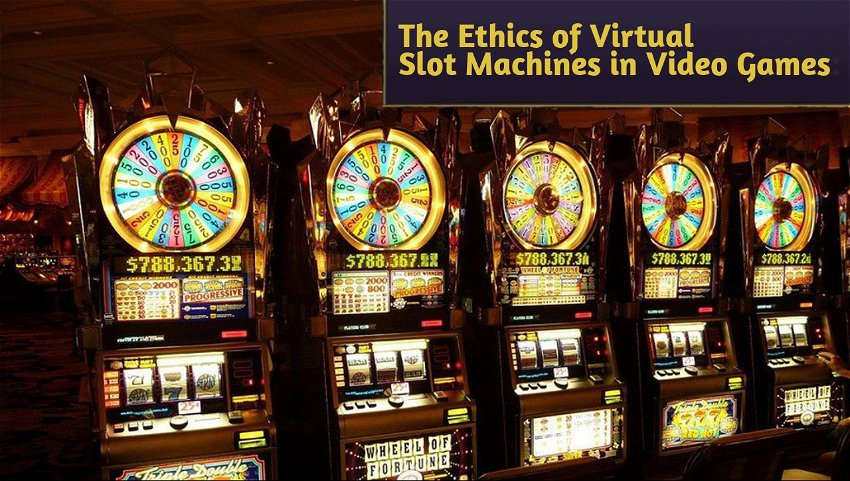The gaming industry has witnessed a surge in the use of slot machine-like mechanics in mainstream video games. It revolves around the incorporation of virtual slot machine-like mechanics in mainstream video games, a practice that has raised profound ethical questions. As the gaming industry continues to push boundaries and captivate players with tantalizing rewards, it is crucial to delve into the ethical considerations surrounding these mechanics, examining their implications on players and society as a whole.
The Rise of Slot Machine-Like Mechanics
Slot machine-like mechanics have infiltrated various genres of video games, from mobile apps to console titles. These mechanics offer players the thrill of chance, providing randomized rewards that can range from in-game items and characters to cosmetic upgrades. Game developers have capitalized on the psychology of rewards and anticipation, creating a sense of excitement that keeps players engaged.
One primary source of inspiration for these mechanics is the gambling industry itself. The allure of hitting the jackpot in a slot machine or winning a rare item in a loot box taps into similar psychological triggers. This has led to concerns about the potential for addiction and exploitation, as players are encouraged to spend real money to obtain these randomized rewards.
The Ethical Dilemma: Player Vulnerability
One of the key ethical considerations surrounding virtual slot machines in video games is the vulnerability of players, particularly younger individuals. Children and teenagers, in particular, may be more susceptible to the thrill of gambling-like mechanics without fully understanding the financial implications.
Studies have shown that the brains of adolescents are still developing, making them more impulsive and less capable of making informed decisions. When exposed to randomized rewards in games, young players may not fully grasp the odds of winning or the cost of repeated microtransactions. This lack of awareness can lead to excessive spending, financial strain, and even addiction.
The Impact on Mental Health
Ad
Another significant concern is the impact of virtual slot machines on the mental health of players. The constant cycle of anticipation and reward can lead to a dopamine rush, creating a sensation of pleasure and excitement. However, this can also lead to dependency and compulsive behavior, similar to what is observed in gambling addiction.
Players who become engrossed in games with these mechanics may experience heightened stress levels, anxiety, and even depression when they do not achieve the desired rewards. The presence of microtransactions and the pressure to spend real money to enhance their gaming experience can exacerbate these negative emotions.
Loot Boxes and the Element of Chance
Loot boxes, a common form of virtual slot machines in video games, rely heavily on the element of chance. Players purchase these boxes without knowing exactly what they will receive. This unpredictability can be thrilling for some but can also lead to frustration and disappointment.
The ethical concern lies in whether this element of chance is fair to players. Are they receiving value for their money, or are they being exploited? Critics argue that the lack of transparency and the odds of obtaining rare items or characters are deliberately obfuscated, making it difficult for players to make informed choices.
Gacha Systems and "Whales"
Gacha systems, popularized by mobile games, introduce an additional ethical dimension. These systems often offer rare and powerful characters or items that can significantly enhance gameplay. Players can spend varying amounts of money to acquire these assets, and some individuals become what is known as "whales" – spending exorbitant sums to obtain coveted items.
While game developers argue that gacha systems offer a sense of fairness by allowing players to obtain powerful assets without relying solely on luck, the reality is that they can lead to significant financial burdens for some players. The temptation to spend more to acquire a specific character or item can be overwhelming, and this can lead to severe financial consequences.
Ad
Instant Withdrawal Casinos and Real-Money Gambling
While virtual slot machines in video games may not involve real-money gambling directly, they often expose players to the world of online casinos and gambling. Some games offer in-game items that can be converted into real money or used for gambling on external platforms.
An instant withdrawal casino, which allows players to quickly cash out their winnings, has gained popularity in this context. Players who acquire valuable in-game items may be tempted to cash them out and try their luck in a real-money gambling environment.
This interconnectedness between video games and real-money gambling raises additional ethical questions. Are game developers indirectly promoting gambling to a younger audience, and should there be stricter regulations to prevent such exposure?
Regulatory Responses
In response to growing concerns about the ethics of virtual slot machines in video games, some countries have introduced regulations. Belgium and the Netherlands, for example, have declared certain loot box mechanics as gambling and have prohibited their inclusion in games targeted at minors.
These regulatory measures aim to protect vulnerable players and promote transparency in the gaming industry. However, they have also sparked debates about the appropriate level of government intervention in the gaming market.
Balancing Entertainment and Ethics
Ad
In conclusion, the ethics of virtual slot machines in video games remain a contentious issue. While these mechanics can enhance gameplay and provide excitement, they also pose significant risks to players, particularly young and vulnerable individuals. The impact on mental health, the element of chance, and the potential for excessive spending are all valid concerns that warrant careful consideration.
As the gaming industry continues to evolve, it is crucial for developers, regulators, and players to find a balance between entertainment and ethics. Transparency, responsible game design, and age-appropriate restrictions can help mitigate the negative consequences of virtual slot machine-like mechanics while preserving the enjoyment of gaming for all. Ultimately, the ethical debate surrounding these mechanics will continue to shape the future of video games.





— commentaires
0Soyez le premier à commenter